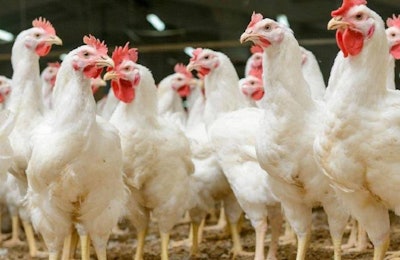
High feed costs, cheap poultry meat imports and weak consumer demand in South Africa are continuing to challenge the country’s poultry sector, leading Astral Foods to warn its shareholders that both headline earnings and earnings per share for the 12 months ending September 30 will be down between 50 and 70 percent compared to the previous year.
In its latest trading update, the company states that the challenging trading conditions experienced during the first half of the financial year have continued into the third and fourth quarters. Astral’s full-year results are due to be published on November 21.
Other companies face similar struggles
Under these challenging market conditions, it is not surprising that other poultry companies in South Africa are under pressure.
Business Day reports as “worrying” the fact that Sovereign Foods had not yet issued a trading update covering the interim period to the end of August. Already controlling 47 percent of shares in Sovereign, Country Bird Holdings (CBH) has made an offer, due to expire shortly, to take up the remaining stake in the company. The downturn in the local poultry market is likely to make the remaining institutional shareholders in Sovereign view CBH’s offer more favorably.
Somewhat more positive overall results were recorded by South Africa’s leading poultry company, RCL Foods, in its annual report published at the end of last month. Rainbow Poultry was one of RCL’s subsidiaries and has now been incorporated into “One RCL Foods”. The group’s annual revenue was up 6.8 percent at ZAR25.0 billion (US$1.75 billion), although profitability metrics were down from the previous year. The increase in revenue was attributed to the expansion of the company’s other businesses, which reduced its dependency on chicken and sugar.
Some brining issues remain unresolved
South Africa’s government has stepped in to resolve the country’s long-lived debate over limits to the brining of chicken, a process by which fat and salt solutions are injected into the meat, according to another recent report from Business Day.
The Department of Agriculture, Forestry and Fisheries (DAFF) and others have called on a court to dismiss the application by the South African Poultry Association (SAPA) to prevent the introduction of regulations that will put an upper limit on the amount of brine allowed in chicken. The proposed cap of 15 percent is due to be imposed from next month.
Supporting the department’s view that the current brining process means sales of chicken containing one-quarter water are the Association of Meat Importers and Exporters and the National Consumer Union.
Among the companies reported to be affected by the ruling are RCL Foods, which is the country’s largest chicken producer and Astral Foods, South Africa’s top producer of frozen chicken pieces. Astral has stated it has started to reduce the brine addition to 15 percent.
South Africa’s “chicken brining debate” has been going on since at least 2011, when DAFF reports meeting with SAPA on the issue. Both sides in the discussion were exchanging the same views 3 months ago, and the deadline for the introduction of the new limit is now just weeks away.
According to Business Day, one of the still-contentious issues is the fate of poultry meat that has been brined according to the current regulations and remains in frozen storage after the deadline. Frozen and brined poultry meat has a shelf life of 12 months, and to destroy or return these products to the supplier would be wasteful.
SAPA CEO Kevin Lovell, has put forward the suggestion that these products may be sold – but not processed – after October 22.
















